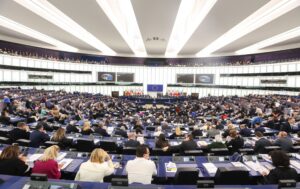European Parliament and Member States reach agreement on EU Packaging Regulation
The EU Packaging Regulation has reached the finishing line: the European Parliament and the EU Member States have agreed on new rules for sustainable packaging.
The result is an ambitious framework that encompasses the entire lifecycle of packaging. From 2030 onwards, strict requirements for the recyclability of each packaging will apply, which will then be gradually tightened. “Design for recyclability is already a guiding principle for many manufacturers. Making this mandatory is a correct and important step towards effectively closing material cycles,” says Carl Dominik Klepper, Chairman of the Arbeitsgemeinschaft Verpackung und Umwelt (AGVU).
Despite widespread criticism, the text also includes new product bans whose environmental effectiveness is not proven. “The bans are disproportionate and restrict the freedom of choice for consumers. A more appropriate approach would be to increase the cost of certain packaging materials, for example through the design of licensing fees based on ecological criteria,” emphasizes Klepper.
Similarly problematic are the new rules for transport packaging: in the future, packaging used by companies for the domestic transport of products must be reusable (exception: cardboard boxes). This poses a significant financial burden on companies, with unclear environmental benefits: “Transport packaging is already traded as a valuable raw material and is recycled to a very high extent. However, reusable requirements necessitate the return transport of empty packaging and cause emissions.”
The plenary of the European Parliament and the Council still need to approve the negotiated text. Furthermore, the support of the EU Commission is still pending due to trade law concerns regarding import restrictions on recycled plastics.



